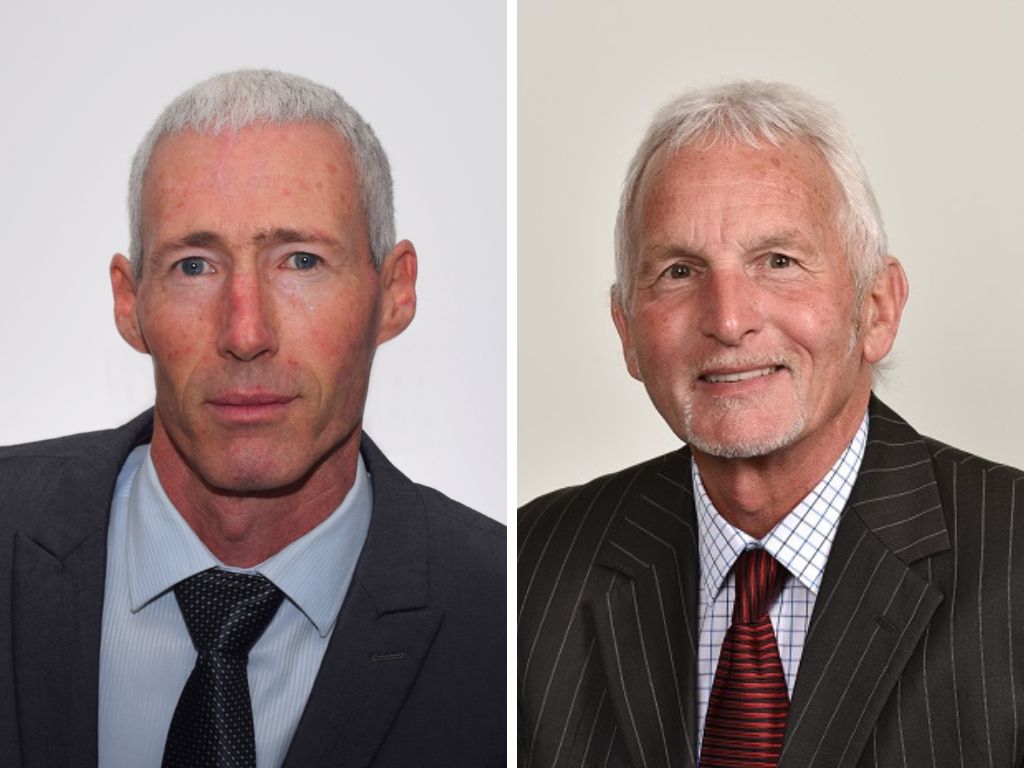Councillors slam STV shift as ‘Dunedin-centric’
Kim Bowden
16 July 2025, 5:45 PM
 Central Otago-based regional councillors Gary Kelliher (left) and Michael Laws do not support a new voting system adopted by Otago Regional Council for the upcoming elections. Photos: Supplied
Central Otago-based regional councillors Gary Kelliher (left) and Michael Laws do not support a new voting system adopted by Otago Regional Council for the upcoming elections. Photos: SuppliedTwo out of three councillors representing the Dunstan constituency on Otago Regional Council will throw their hats in for re-election in a few months’ time, but neither is happy with the voting system that could get them a seat around the decision-making table.
The single transferable vote (STV) system, where voters rank candidates in order of preference, was set to be adopted in this year’s council elections.
The move away from the first past the post system used previously was supported by a majority of regional councillors last year.
But Dunstan councillors Michael Laws and Gary Kelliher were not among them.
For Michael, the shift was further evidence of what he claimed to be a Dunedin-centric regional council.
“STV was imposed on the Dunstan ward by a majority of Dunedin-based councillors,” he said.
“We now have two voting systems that conflict: first-past-the-post for the CODC (Central Otago District Council) and QLDC (Queenstown Lakes District Council) mayoralty, council and community boards; and STV for the ORC Dunstan ward.”
He described having two voting systems before the electorate as “madness”.
“Anything that hinders voter turn-out - by making voting more difficult - is a bad idea.”
Gary also voiced concern at what he saw as a block of urban councillors swaying the voting system shift.
“It’s a more confusing system and it was heavily supported by the Dunedin-centric faction of the ORC councillors, so it makes me suspicious.”
However, the ORC communications team was working to uncomplicate the new system for voters in a novel way.
A ‘how-to’ guide published by the council on its website used the example of voters selecting their favourite ice-cream flavours to explain the process.
“Cookies and cream is the best - how do I give it my vote?” the website asked.
“Rank cookies and cream ‘1’ in your ballot - if you want a second option, rank that one ‘2’,” it continued.
“If you really, really don't want strawberry (because eeewww), then make sure their box is as empty as their flavour.”
STV had its supporters, including politics and voting specialist Professor Janine Hayward, of the University of Otago.
Speaking to Dunedin media about the long-term use of the voting system by Dunedin City Council, the professor said it produced election results that reflected the wishes of the people with a high degree of accuracy.
Dunstan’s third representative, Queenstown-resident Alexa Forbes, announced in February she would not be standing for re-election in this year’s election.
Following a representation review last year, Dunstan would gain a fourth councillor in October’s elections.
Have a story to share or comment to make? Contact [email protected]

